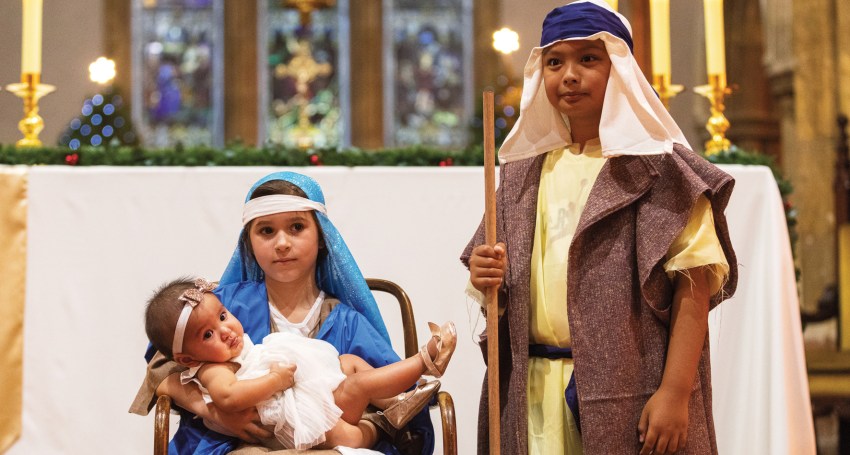Silent Night, Holy Night
Opinion
If I were to ask a group of people to name their favourite Christmas carol, chances are that more than one would nominate Silent Night.

This beautiful carol, written in 1816 and set to music two years later, has touched the hearts of many for more than 200 years. Each verse begins with the words, ‘Silent night, holy night’ and yet, if we think about it, it was probably anything but a ‘silent’ night when Jesus was born. Bethlehem would have been abuzz, because a census had been called and everyone descended from the house of David was trying to find a place to stay.
Advertisement
Even the stable where Jesus was born was probably not silent but filled with the noise of the animals kept there. And childbirth itself is not exactly a silent activity! So why did Joseph Mohr choose these two words to begin his carol?
The answer is found in the second pair of words, ‘Holy night’. This was the night on which earth and heaven met; the night when the Son of God took on human form and became one of us. Many years before this the prophet Habakkuk had written: ‘The Lord is in his holy temple; let all the earth be silent before him.’ This was the moment when history changed direction. This was what Joseph Morh was getting at.
As the second verse of the carol says, this was the ‘dawn of redeeming grace’, the moment when ‘love’s pure light’ beamed forth. The original German text actually says that ‘the divine mouth laughed out love’ when salvation reached the world. What a beautiful expression to describe the joy of God as this saving light was revealed. This certainly was a night different from all others.
In verse three we meet the simple shepherds who were silent in amazement as their work was interrupted by a choir of angels who sang to them about a saviour being born. When they hurried to the manger, they found everything exactly as the angels had said.
Usually, only three verses of this carol are sung, but the other three also have much to tell us. Verse four speaks of the ‘healing light sent from heaven’.
This reminds us of the words of another prophet, Malachi, who said that when the Messiah came, the ‘sun of righteousness would rise with healing in its rays’. Jesus came with abundant grace for us all and came to take away sin and sorrow.
Verse five tells us that the Son whom God sent to earth was the child ‘from who all blessings flow’. Jesus welcomes each of us into his arms and brings to each of us God’s mercy and forgiveness.
Usually it is the adult who takes the child up into his embrace, ensuring the little one a place of safety, security and love. Here it is the infant Jesus who ‘embraced humankind’, reminding us how much God loves each one of us.
Verse six speaks of Jesus as ‘God’s promise of peace’. Isaiah had spoken of the Messiah as the ‘Prince of peace’ and Jesus himself, at the end of his earthly life, declared, ‘Peace I leave with you; my peace I give to you. I do not give as the world gives. Do not let your hearts be troubled or afraid.’ (Jn 14:27)
Advertisement
In our current world, we need God’s gifts of healing, reconciliation and peace more than ever before. Our hearts seek hope, joy and love. Christmas is so often busy, noisy and full of activity.
As we hear this beautiful carol this year, let us reflect for a moment on what it is telling us and take a few seconds to remember the night on which the entire world stood in holy silence to welcome the Son of God into our midst.
Dr Jenny O’Brien is manager of the Office for Worship







Comments
Show comments Hide comments